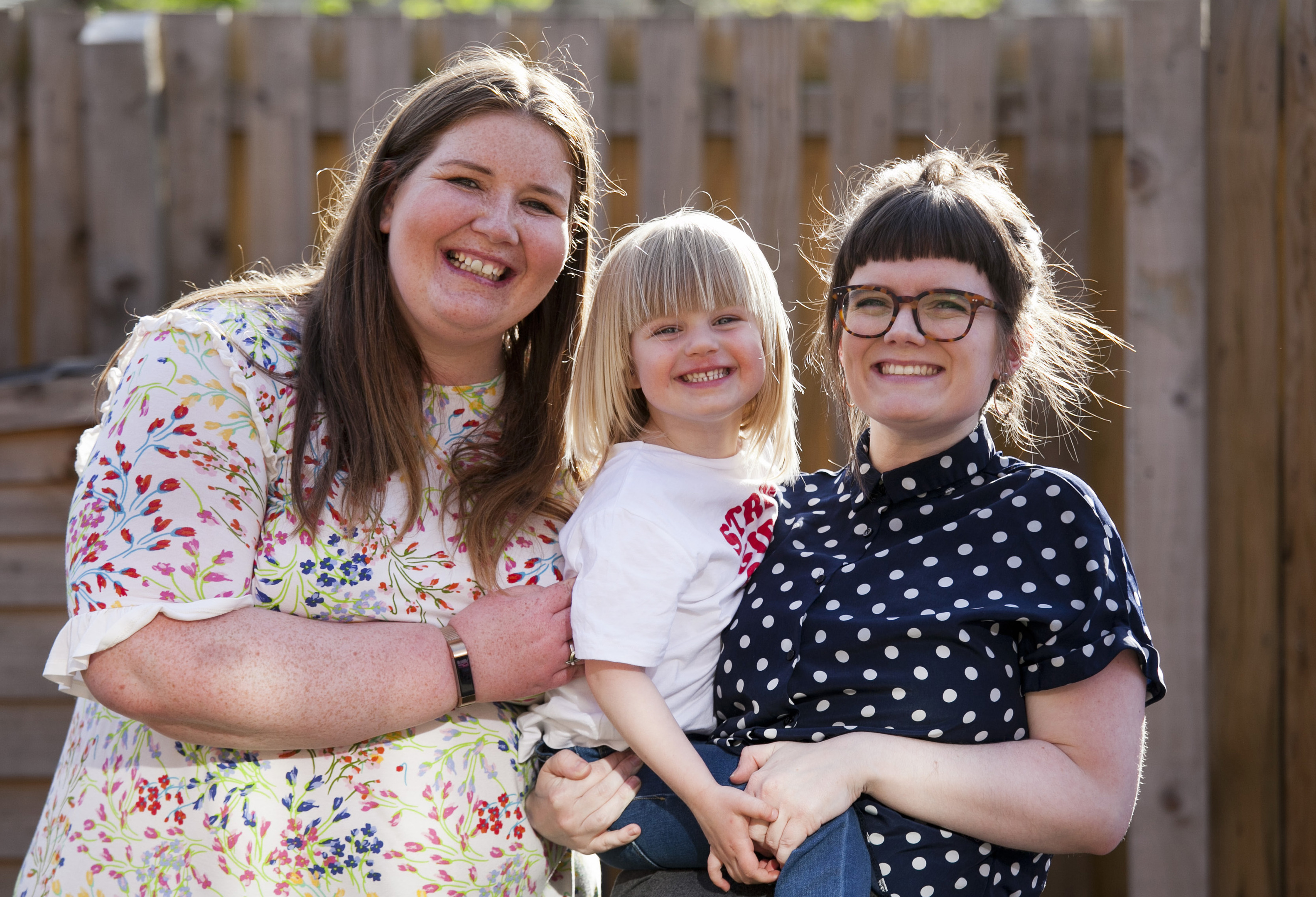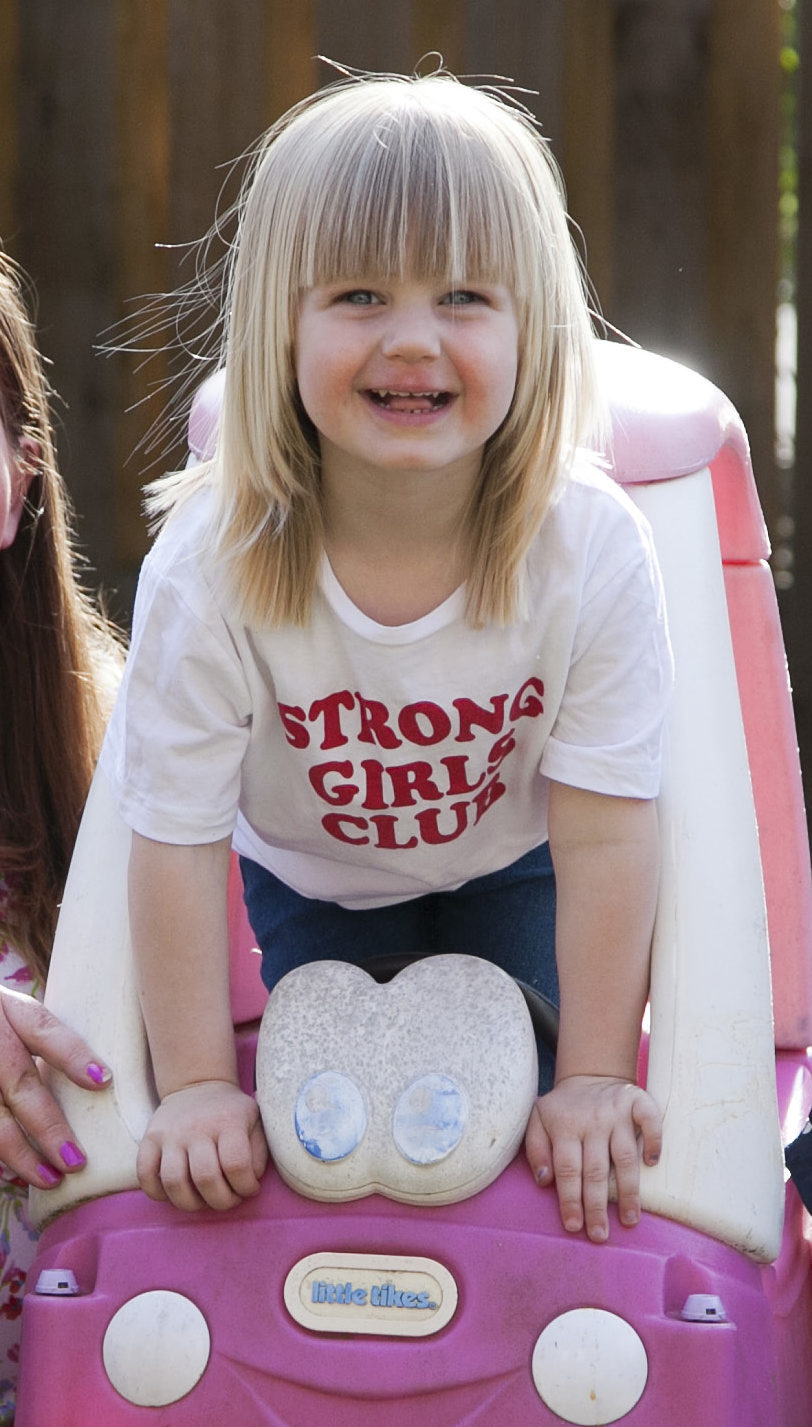
IN the months after she gave birth, Florence McPherson was sharing adorable photos of her daughter online.
From the outside, the 24-year-old seemed fine and was the picture of a healthy and happy first-time mum.
But the reality was very different.
Following a straightforward pregnancy, Florence, from Edinburgh, had gone through a traumatic labour after she contracted sepsis, a potentially fatal blood infection, during delivery.
After giving birth, she was rushed to a high dependency unit as doctors struggled to stabilise her heart rate and a fever.
“I didn’t realise how serious it was until afterwards,” said Florence, now 28.
“I left hospital four days later but wasn’t able to hold Nieve during that time.
“I also couldn’t breastfeed in the weeks that followed because I was still on medication.
“Looking back, I think that had a huge effect on me.”
As she recovered, Florence still struggled to adapt to life as a new mum. Strange thoughts and feelings started to creep into her head but she and partner Ben put it down to being her constantly overwhelmed and exhausted.
“I would stand at the top of a staircase and think if I was to fall maybe I could go to hospital and get some sleep,” confessed Florence.
“If I got any free time go out by myself I used to want to stay on the bus past my stop.
“I did want to be home with my daughter but she scared me a little.”
Eighteen months later, Florence was signed off work and finally diagnosed with post-natal anxiety.
Perinatal mental health issues can affect women from conception until their child is two.
It can arrive in various forms, including depression, anxiety, stress, OCD, psychosis and PTSD.
According to the Maternal Mental Health Alliance, one in ten women will struggle with their mental health during pregnancy or within the first year of giving birth.
Florence added: “I don’t think perinatal mental health is discussed enough and I don’t think there’s enough support for women, especially younger women.
“I felt very lost during those early months.”
She was prescribed medication but found “life-saving” support thanks to Juno Perinatal Mental Health Support, an Edinburgh-based, non-profit organisation.
“I was going through a bad phase at the time and too scared to talk to a health professional because I thought they might take my children away from me,” said Florence.
“To sit in a room with others who completely understood what I was going through was refreshing.
“I felt like a weight had been lifted every Monday night after the group.
“I’m a massive advocate for it now because it totally changed my life.”
Juno was founded by a group of mums in Edinburgh in 2015 to offer peer support to women struggling with their mental health.
After experiencing undiagnosed post-natal anxiety following the birth of her youngest son Matthew five years ago, co-founder Lauren Knight reached out to other mums online.
“Until you’ve experienced it you have no idea how it awful it feels,” said Lauren.
“Everything was grey. I kept thinking that my child was going to die.
“I was given medication and counselling but all I wanted was to meet another mum who felt like I did. That was invaluable.”
The group holds weekly meetings across Edinburgh, where mums chat over tea and biscuits.
Juno also offers one-to-one befriending and access to a subsidised counselling service and therapies.
“Peer support won’t be the sole reason for recovery but it plays a massive part,” said Lauren.
“A lot of volunteers have been through the groups themselves, so its mums supporting other mums.”
Juno helps hundreds of mums every year.
While overhead costs are low, Juno is run solely through fundraising and all staff are volunteers.
“I think we’re still waiting to see funding into mental health on the ground,” said Lauren.
“That’s where Third Sector and voluntary organisations like Juno come in.
“It would be amazing if this was an NHS-funded initiative with a full-time member of staff.
“I’d love to see Juno rolled out across Scotland.”
Florence is now 15 weeks’ pregnant with her second baby and recently returned to Juno for the first time in five months.
“My mental health is much better and I’m calmer now,” she added.
“Now I’m more open and honest about my mental health, I can almost confront it head-on now if those feelings return.
“I’ve had to gradually come off my medication as I’m pregnant so having the option to go to Juno has really helped.
“It feels like there’s a light at the end of the tunnel.”
To help with running costs, several Juno members, including Lauren, are raising cash by taking part in the Edinburgh Marathon. Visit justgiving.com/crowdfunding/emfteam1

Enjoy the convenience of having The Sunday Post delivered as a digital ePaper straight to your smartphone, tablet or computer.
Subscribe for only £5.49 a month and enjoy all the benefits of the printed paper as a digital replica.
Subscribe